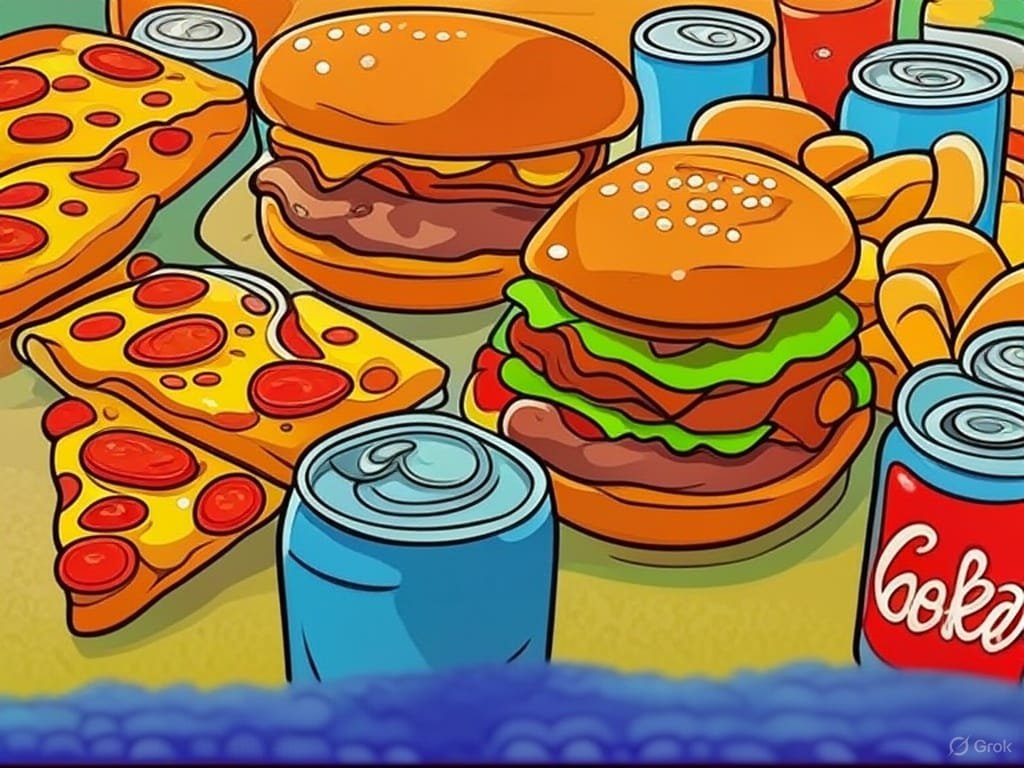Americans are one of the sickest nations in the OECD, ranking near or at the bottom in various health outcomes. Although the United States spends more on health care than the other OECD countries, it has lower life expectancy, higher infant mortality, and higher rates of preventable mortality and chronic diseases than many other developed nations.
Poor diet has been identified as one of the contributing factors. According to some statistics, about 60% of American adults’ diet and 67% of children’s diet consist of ultra-processed foods that have minimal or no nutritional value and contribute to obesity and inflammation that underlie many chronic illnesses such as heart disease, cancer, and diabetes.
Many critics blame capitalism for the poor diet, or more specifically, the pursuit of profits by food and beverage companies. It’s true that Pepsico, Kraft Heinz, Nestle, Coca-Cola, General Mills and other food giants make ultra-processed, convenient, highly palatable products such as potato chips, packaged dinners, cookies, and sugary soft drinks and don’t inform consumers about their deleterious health effects. The latter is unethical.
But is capitalism to blame?
I argue no, because the food manufacturers don’t operate under capitalism but in a statist mixed economy where the government and business operate in a crony symbiosis. The government regulates business, and companies lobby the government for favorable regulations and other favors in exchange for political contributions and donations to government agencies and NGOs that supposedly educate the public about health and nutrition.
American Heart Association, for instance, receives millions of dollars in donations from PepsiCo and Coca-Cola. Unsurprisingly, AHA recently opposed a politician’s initiative to remove sugary soft drinks from the list of foods allowed to be purchased with food stamps.
The statist mixed economy, not capitalism, is to blame for Americans’ poor health and poor diet. The root cause is its public education system that does not teach students to think for themselves but instead lulls them into believing it is the government’s responsibility to take care of them – and theirs to obey the government without questioning. Besides undermining people’s thinking skills, the statist mixed economy diminishes their sense of personal responsibility. This leads to poor decision making, including in health and nutrition.
Cronyism and poor education diminish productivity and economic growth and hinder prosperity, which also contribute to the appeal of cheap, unhealthy food.
Contrary to the critics’ claims, capitalism would lead to better diet and health outcomes for all.
According to Ayn Rand, “capitalism is a social system based on the recognition of individual rights, including property rights, in which all property is privately owned.” In such a system, the government does not interfere with people’s lives, including the markets; its only role is to protect individuals against physical force and fraud. Capitalism is a system of freedom that requires people to take responsibility for their own life: their learning, their work, their health. It’s a system of free-market competition where the best products at best prices, whether education, food, health care, or anything else, win the most customers and the most profits. As the history of free market development has shown, such competition and profit seeking creates wealth that increases the standard of living for all.
Free-market competition under capitalism incentivizes companies to trade value for value (and not junk food for hapless customers’ dollars), by mutual consent for mutual benefit, such as nutritious food that customers are willing to pay for and that yields a profit for the shareholders. If companies don’t provide value to customers and try to mislead or deceive them, they cannot survive in the competition with their better peers and under the government’s enforcement of the laws protecting individual rights.
There is no room for cronyism in capitalism, because the government does not regulate business or hand out favors; it merely sets and enforces laws that protect individual rights (including against fraud through false or misleading advertising).
Significantly improving Americans’ health would require, not only abolishing cronyism in the food industry, but changing the social system from the statist mixed economy to capitalism where people are responsible for their own lives. But this takes time. To take steps toward change, we could
- call out the government and food companies on their cronyism that harms people’s health,
- support education and evidence sharing about health and nutrition (through podcasts, social media, private schools),
- advocate and support better education, i.e., private schools that teach students to think independently, and of course,
- speak up for freedom and capitalism.










